Religion
Shua's daughter: Midrash and Aggadah
Shulammite: Bible
Shunammite: Bible
The “great woman of Shunem” appears twice in the narratives about the ninth-century B.C.E. prophet Elisha. Her title suggests wealth, but also, as the story unfolds, independence of mind and faith.
Shunammite: Midrash and Aggadah
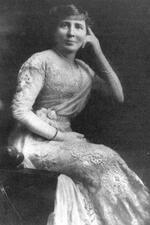
Carrie Obendorfer Simon
Carrie Obendorfer Simon helped shape the Reform movement as founder of the National Federation of Temple Sisterhoods, which quickly became the largest Jewish women’s organization in America.
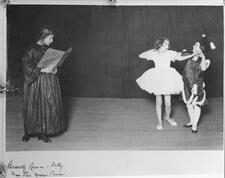
Sisterhoods of Personal Service in the United States
Sisterhoods of Personal Service coordinated the philanthropic work of synagogue sisterhoods across New York City and the United States in the late nineteenth and early twentieth centuries, assisting a considerable number of immigrants through a variety of financial, vocational, educational, and social programs.
Benjamin Aron Slonik
Benjamin Aron Slonik, a Polish rabbi and student of the Maharshal and Rema, was notable for his independent approach to halakha. His rulings often went against his colleagues, including on women’s halakhot.
Sociodemography
Over the last several decades, Jewish women attained significant achievement in the socio-economic sphere and played a leading role in maintaining Jewish continuity. In general, Jewish women are educated and participate in the labor force at higher rates than their non-Jewish counterparts.

Sabrina Sojourner
Hazzan Sabrina Sojourner is a seasoned cantor whose spoken word midrashim create a larger vision of who we are as a people, inspiring us to take better care of ourselves, each other, and our planet.

Sol Hachuel
Sol Hachuel, or as she is also known Lalla Soulika or Sol ha-tsaddeqet, was a Moroccan Jewish martyr from the first half of the nineteenth century. Hachuel was born in Tangier and beheaded in Fez at the age of sixteen or seventeen. Her story has inspired countless versions among North African Jews and Muslims as well as Europeans, and her tomb remains a prominent pilgrimage site in Morocco.
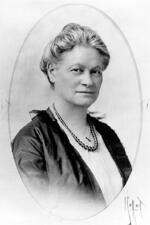
Hannah Greenebaum Solomon
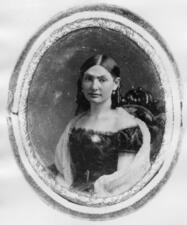
Hannah Marks Solomons
Hannah Marks Solomons was an influential San Francisco educator and civic worker, as well as the wife of a leading member of the Jewish community.
Solomon’s Judgment: Bible
In this story, King Solomon is asked to consider the case of two women who gave birth to sons but, due to the death of one of their children, are fighting over the remaining child. While the story is generally cited as an example of Solomon’s wisdom, this narrative also shows the possessiveness of maternal love.
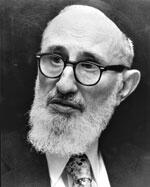
Soloveitchik, Rabbi Joseph Dov
Joseph Dov Soloveitchik shaped Jewish practice and public opinion through the era of second-wave feminism. Despite his sometimes progressive actions, Soloveitchik maintained that women and men had separate religious and familial roles. These positions from the leader of the Modern Orthodox community cemented resistance to Orthodox feminists’ demands to increase their participation in Jewish rituals.
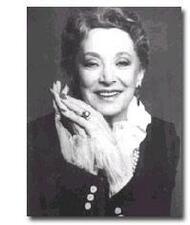
Estelle Joan Sommers
Estelle Joan Sommers was a designer, entrepreneur, and executive who made her career in retail dancewear, introducing innovative designs for Capezio’s dance and exercise clothing.
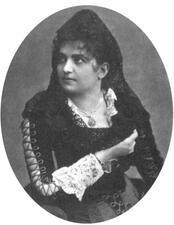
Rosa Sonneschein
Rosa Sonneschein created and edited the American Jewess, the first English-language magazine for Jewish women in the United States, where she advocated for the expansion of women’s roles in the synagogue and the Jewish community and expressed her strong support for Zionism.

Susan Sontag
Susan Sontag was one of the most prominent American writers of the twentieth century. Her work across cultural criticism, fiction, drama, and film, as well as her public persona, made her an icon of the New York intelligentsia whose writing on photography, illness, and art continually inspire engagement and debate.
Sotah
Sotah, Tractate
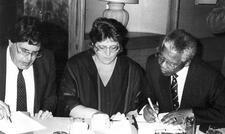
South Africa
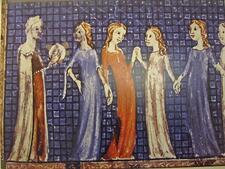
Medieval Spain
Written histories of Jews in medieval Spain rarely include women, so one must seek alternate sources. Marital status was the frequent topic of rabbinic responsa. Some Jewish women made their own income as merchants and moneylenders. Inheritance laws were problematic for Jewish women – disputes were settled in both Jewish and non-Jewish courts.
Dora Spiegel
Dora Spiegel served in many fields, including education, the organization of league sisterhoods, and publications stimulating women’s loyalty to the synagogue and the Jewish home. She helped found the Women’s Institute of Jewish Studies at the Jewish Theological Seminary of America, influencing the lives of countless Jewish women and children.
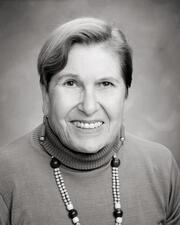
Marcia Cohn Spiegel
Miriam Spira-Luria
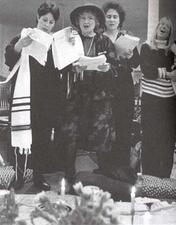
Spirituality in the United States
Jewish women’s spirituality developed historically within the confines of a patriarchal tradition. Over time, feminists have developed rituals and created spaces that honor the unique experiences of women.


